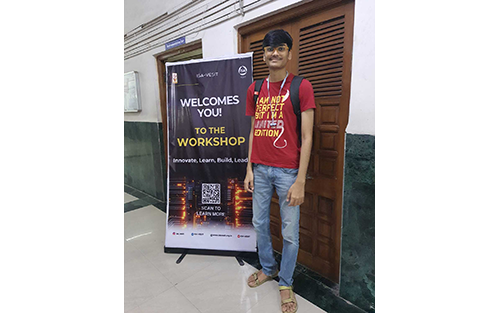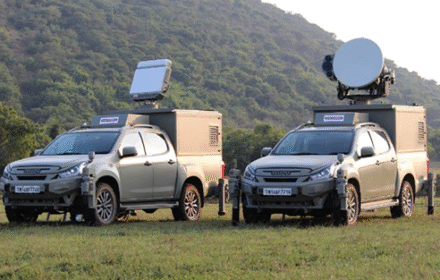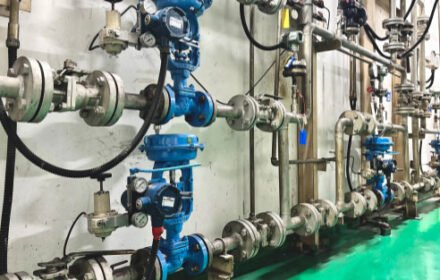
My Industrial Automation Journey: From Student to Professional
Industrial automation continues to transform manufacturing worldwide. According to MarketsandMarkets, the global industrial automation market will reach $306.2 billion by 2027. My personal journey in this field began unexpectedly during college.
Discovering Industrial Automation Through ISA
I first encountered industrial automation at a VESIT college workshop. The International Society of Automation (ISA) hosted this session. Initially, automation was just another engineering concept to me. However, the hands-on approach immediately captured my interest.
Our mentor Gopalakrishnan Sir provided exceptional guidance. Senior students demonstrated real-world applications. The atmosphere emphasized collaboration over competition. This experience revealed automation’s practical potential.
Competing in the India Automation Games
The India Automation Games tested multiple technical skills. Participants faced challenges in robotics, pneumatics, and PLC programming. LabVIEW emerged as my unexpected strength during this competition.
I had never used LabVIEW before the event. Despite initial hesitation, I quickly adapted to the software. Surprisingly, I completed the assignment first in my group. This success built my confidence in technical problem-solving.
Key competition components included:
- PLC programming and ladder logic
- Robotics system integration
- Pneumatics control systems
- LabVIEW virtual instrumentation
Learning From Seventh Place Finish
I narrowly missed qualifying for international competition. My seventh-place finish initially felt disappointing. However, this experience taught valuable professional lessons.
I recognized that growth matters more than immediate victory. Supporting my friend Drushti’s bronze medal achievement felt rewarding. We celebrated her success together throughout Mumbai.
This perspective shift proved crucial for my development. Industrial automation professionals must embrace both successes and setbacks.
Developing Advanced Automation Projects
Following the competition, I pursued more complex projects. My colleague Bipin and I created innovative automation solutions. We developed a VR-controlled autonomous mobile robot.
This project incorporated simultaneous localization and mapping (SLAM) technology. The IEEE reports that SLAM implementation has grown 47% in industrial applications. Our system demonstrated practical factory automation potential.
We benefited tremendously from ISA’s technical resources. The organization provided workshop space and expert mentorship.
Mentoring Next-Generation Automation Engineers
As I advanced technically, I began teaching others. We organized ROS2 and robotics workshops through ISA VESIT. Guiding junior students felt particularly meaningful.
Watching them solve automation problems mirrored my own journey. Their breakthroughs reinforced automation’s collaborative nature. Technical knowledge grows when shared across generations.
Receiving ISA International Scholarship Recognition
The ISA International Scholarships represented a career milestone. My colleagues and I all received $2,000 awards. ISA President Scott Reynolds personally congratulated us.
This recognition validated our technical growth and persistence. The scholarship committee acknowledged our practical experience. They appreciated our knowledge-sharing efforts with younger students.
Current Role in Industrial Automation
Now I lead workshops and competition preparation as a mentor. I help students master control systems and factory automation concepts. Seeing their progress remains incredibly rewarding.
The automation field continues evolving rapidly. Emerging technologies like IIoT and digital twins are transforming manufacturing. Industry 4.0 implementation requires skilled professionals.
Practical Industrial Automation Applications
Based on my experience, I recommend several learning approaches for automation mastery:
- Begin with fundamental PLC programming concepts
- Practice with industrial control system simulations
- Understand DCS architecture and implementation
- Master industrial communication protocols
For comprehensive industrial automation solutions, explore World of PLC’s product offerings. Their expertise spans control systems, factory automation, and industrial IoT implementation.
Reflecting on Automation Community Impact
ISA provided more than technical knowledge during my journey. The organization created a supportive professional community. This network helped me overcome challenges and celebrate achievements.
Industrial automation thrives on shared knowledge and collaboration. My seventh-place finish initially seemed like a failure. However, it ultimately strengthened my professional resilience.
The automation industry values both technical competence and persistence. These qualities ensure long-term career success in our rapidly evolving field.
Frequently Asked Questions
What skills are essential for industrial automation careers?
Professionals need PLC programming, control system design, and problem-solving abilities. Understanding industrial networks and safety standards is also crucial.
How important are practical projects for learning automation?
Hands-on experience significantly enhances theoretical knowledge. Real-world projects develop crucial troubleshooting and implementation skills.
What emerging technologies are shaping industrial automation?
Industrial IoT, digital twins, and edge computing are transforming manufacturing. Artificial intelligence and machine learning integration are also growing rapidly.







